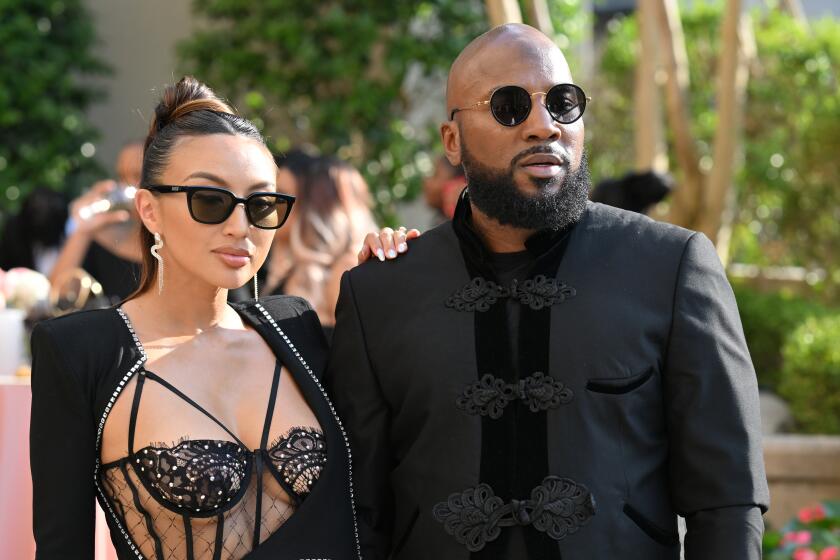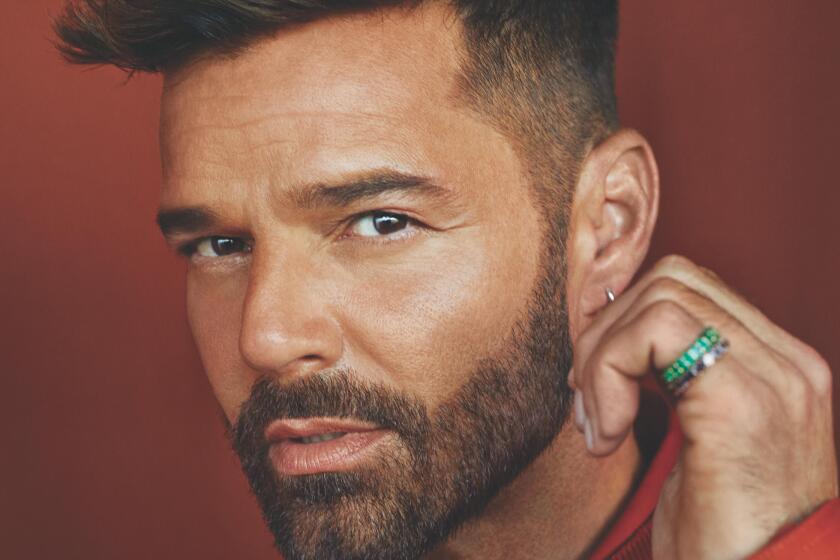Rock Like a Historian
First I should explain that I’m a history professor. I spend my days grading blue books, leading discussions about Hammurabi and chasing references in obscure journals. It has been more than two decades since I considered myself to be a rock musician. The last time I was onstage was in 1981, playing with my band--at that time called the Colours--in a crowded, smoky L.A. club. After the show that night I tucked my bass guitar into its case, rolled up my power cords and walked across a parking lot to my car. Just four weeks later I was attending graduate school in London.
So what was I doing last year when I agreed to play with my former band? My band members and I had remained close friends over the years, and now the bass player was taking a break. I was needed. But in saying yes, I wasn’t just doing them a favor. I know a lot of former rock musicians who are thriving in all kinds of straight jobs--art directors, teachers, academics, lawyers, salesmen--and I bet any of them would jump at a chance like this. To feel the drums pound through their feet, see the checkerboard pattern of faceless heads in the audience, stand in a spotlight, hear the applause. These are not everyday occurrences for most of us; of course I wanted to do it. Besides, I often wondered if I could still play. Here was an opportunity to find out.
I began to doubt my sanity a day or two later, after my name was listed on the website announcing the benefit show, and after I removed my bass from hibernation and played some uncertain scales. The band had not lanquished in obscurity. Two years after I left, the band members, along with their new bass player, changed their name to the Bangles. I had spent most of the 1980s learning ancient languages and studying for doctoral exams; they had spent most of the ‘80s riding the top of the charts and touring the world. They broke up in 1989 and reunited in 2000. Now I was going to stand in as a Bangle, and I hadn’t played onstage in 23 years. I had four weeks to learn two hours of songs.
So that I wouldn’t seem incompetent, I prepared for our first rehearsal by playing bass along with Bangles CDs on the boombox in my kitchen. I tried to teach myself all their hits--”Eternal Flame,” “Manic Monday,” “Walk Like an Egyptian,” “Hazy Shade of Winter” and so on. But I shouldn’t have worried. It turned out that Bangles rehearsals are just as informal as Colours rehearsals used to be, with gossip and jokes between songs. Guitarists Vicki Peterson and Susanna Hoffs and drummer Debbi Peterson patiently walked me through the chords. I felt as though I’d never left.
The good news: Playing bass--at least rudimentary bass--seems to be in the same category as swimming or riding a bicycle. You can’t forget how to do it. The bad news: I have a career. During that same time I was in the final stages of preparing a book manuscript for publication. My editor wasn’t about to change my deadline just because I’d agreed to perform in a concert. And like Vicki, Debbi and Susanna, I have a family, with all the piano lesson-baseball practice-school play obligations that go with it.
So although I knew I should be rehearsing on my own as well as with the band (especially because group rehearsals were few and far between), some days there just wasn’t time. My solution was to play Bangles CDs in my car on the way to work, imagining my bass parts to each song. (This is much more distracting than talking on a cellphone and probably should be illegal.)
The night of the show arrived, a sellout. We walked onstage. Shortly after the applause died down, Vicki introduced me, explaining that she and I had formed a band in high school. She said with a smile, “Unlike the rest of us, Amanda has a real job.” Susanna added, “She’s a professor.” It seemed incongruous even to me as we started the first notes of “Manic Monday.”
The set went by in a blur. The Bangles were having a ball, joking and explaining the origins of some of the more obscure songs. When I dared to look away from my hands to focus on the audience, I could see they were enjoying themselves too. I could dimly see my husband grinning in the fifth row. He was in on the secret that this was not a Bangles show with a visiting bass player, but a reunion of the long-forgotten Colours. The audience hollered and whistled at the end, calling for an encore. As we walked back onstage I saw that everyone was standing and cheering. I stood next to Debbi as the bass and drums came in at the beginning of the encore song, and she smiled at me and shook her head, sharing my sense of deja vu. I had goose bumps.
Then it was over. The house lights came up. The audience noisily made its way out. A little girl shyly asked for my autograph, my first, I think, since I was in a production of “Alice in Wonderland” in ninth grade (but perhaps that doesn’t count because I had to sign my name March Hare). Professors don’t often sign autographs or get standing ovations. This night was everything I had dreamed of all those years ago when Vicki and I first formed a band.
Of all my friends who once were rock musicians, only I left a band that became famous. Sometimes, when I fly across the country, I look down at all those houses on their ruler-straight streets, all those millions of people, and think about how many probably remember “Walk Like an Egyptian.” I’m amazed at the scale of being famous, at just how many people know about you when you’re a star, and at just how non-famous the rest of us are. I think a lot of people wonder what it would be like to see their faces smiling from a magazine cover or hear their voices on the radio. From what I’ve seen, though, that thrill is short-lived. Real pleasure, even for celebrities, comes from things we all value--making a living in a profession you enjoy, being around people you love.
For two decades people have asked if I regretted my choice, and I have always answered “No.” People now ask, “Aren’t you tempted to leave your job and rejoin the band?” The answer (though moot, because Michael Steele is the Bangles’ bass player) is still no. A moment in the spotlight was a joy for me, but it took the Bangles years of touring and recording (and doing promotional radio shows at 4 a.m.) to reach an audience. I decided to put that kind of energy into a field where I had more to contribute, especially because, unlike my former band mates, I can neither sing well nor write songs.
The Bangles are happy with their careers and I am happy with mine. Fame is a nice place to visit, but I wouldn’t want to live there.
More to Read
The biggest entertainment stories
Get our big stories about Hollywood, film, television, music, arts, culture and more right in your inbox as soon as they publish.
You may occasionally receive promotional content from the Los Angeles Times.






